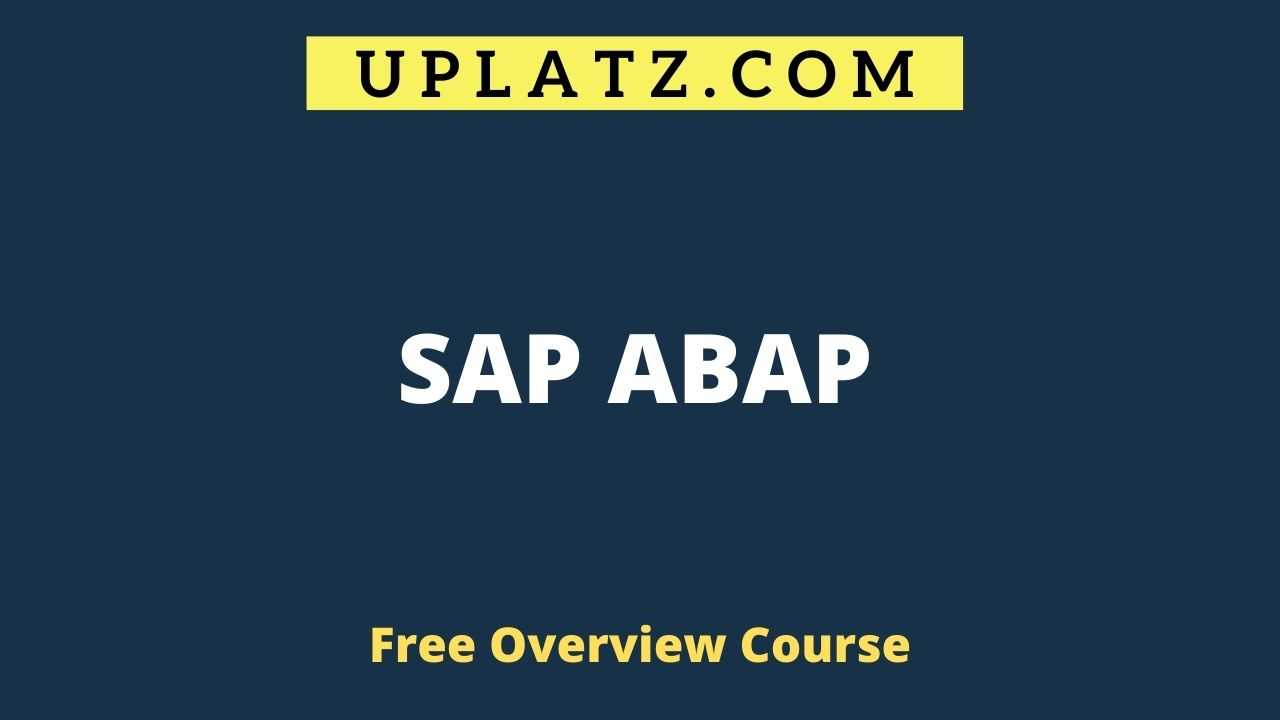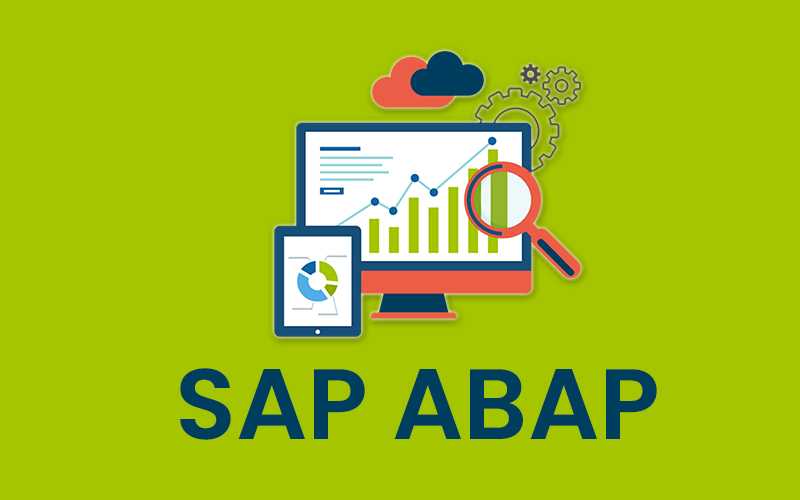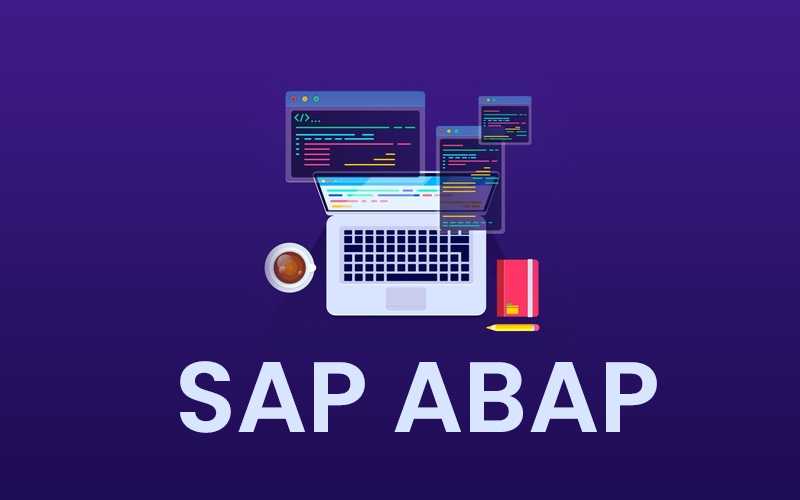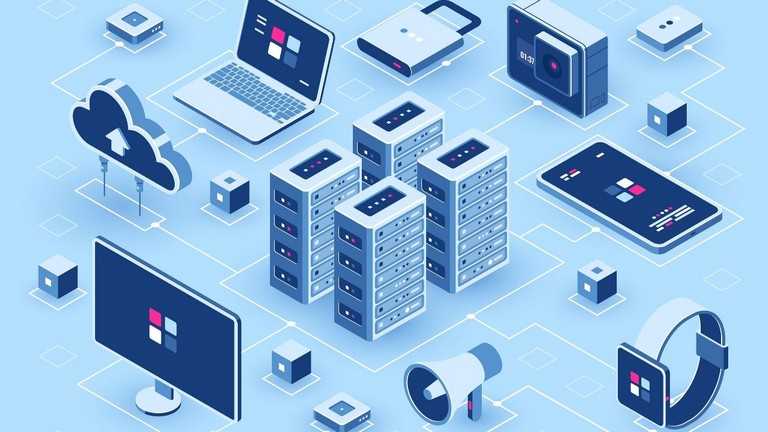Overview Course - SAP ABAP
Learn about the simple applications about ABAP. View Course Curriculum
Price Match Guarantee
Full Lifetime Access
Access on any Device
Technical Support
Secure Checkout
Course Completion Certificate
View Course Curriculum
Price Match Guarantee
Full Lifetime Access
Access on any Device
Technical Support
Secure Checkout
Course Completion Certificate
 60% Started a new career
Enroll Now
60% Started a new career
Enroll Now
-
 40% Got a pay increase and promotion
40% Got a pay increase and promotion
Students also bought -
-

- SAP ABAP
- 30 Hours
- GBP 12
- 111 Learners
-

- SAP ABAP (basic to advanced)
- 20 Hours
- GBP 12
- 152 Learners
-

- SAP ABAP on HANA
- 20 Hours
- GBP 12
- 173 Learners

This is an overview course on SAP ABAP while the complete detailed-level SAP ABAP course is available at - https://training.uplatz.com/online-it-course.php?id=sap-abap-65. SAP ABAP or the Advanced Business Application Programming is a programming language used for the development and customization in the SAP software and is regarded as the main programming language along with the Java for the SAP application server programming. It is a high-level programming language used for the development of enterprise applications on the SAP platform. One of the prerequisites for learning SAP ABAP is a basic understanding of Java Programming and database technologies like PL/SQL. In short, ABAP can be considered as the default programming language for SAP applications.
Learning SAP ABAP Course will help the aspirants to learn and develop enterprise applications for large businesses and excel in the field of software development. Learning ABAP will also help the learners in knowing the advanced features like the ALE, BADI, ALV, IDOC and RFC. In this SAP ABAP course from Uplatz, learners will get a brief introduction to SAP ABAP/4, system landscapes, transport organizer and packet builder, data dictionary, conversion, interfaces, enhancements and many more.
At the end of this course, learners will be awarded a certificate of course completion on SAP ABAP training from Uplatz.
Course/Topic - SAP ABAP overview - all lectures
-
SAP overview
-
ABAP overview
-
Data Types Formatting Options and Parameters
• Design simple and advanced SAP HANA applications with ABAP
• Detect and analyze the performance of your ABAP coding
• Integrate native SAP HANA objects.
1. Introduction to ABAP/4
• Introduction to ERP
• Introduction to SAP/3, ABAP/4
• ABAP Editor
• System Landscapes
3 – Landscapes
4 – Landscapes
2 – Landscapes
• Data Types & Keywords
• Output Statements
• Arithmetic Operations
• Relational Operations
• Writing Small Programs
• String Operations
Translate
Condense
Concatenate
• Control Statements
• Selection Screens
Parameters
Select-Options
• Open SQL Statements (Insert, Modify, Delete, Update)
• Simple Reporting
2. Transport Organizer & Package Builder
• Why to Transport?
• Creation of a Task
• What is a Transport Request?
• Releasing of Request
• Package Creation
3. Data Dictionary
• Creation of Database Tables
• Data Element & Data Domain
• Structures & Table Types
• Search Helps
Elementary Search Help
Collective Search Help
• Creation of Views
Database View
Projection View
Maintenance View
Help View
• Type Groups
• Creation of Foreign Keys
• Check & Value Tables
4. Reporting
• Debugging Techniques
• Pillars of ABAP
Work Area
Internal Table
• Modularization Techniques
Sub-Routines
Includes
Function Modules
• For All Entries & Joins
• Events for Classical Reports
• Events for Interactive Reports
• Types of Messages & Message Class Creation
5. ABAP List Viewer
Introduction to ABAP List Viewer
Types of ABAP List Viewer
• Function Module for List Display
• Function Module for Grid Display
• Interactive ALV (SLIS)
6. Interfaces
• Introduction to Cross Applications
• Working with RFC Function Modules
• Overview of Business Objects
• Creation of Business Objects
• Creation of BAPI
7. Conversion
Why Data Transfer?
• Introduction to BDC
• Recording a Transaction
• Methods in BDC
Call Transaction
Session Method
• Flat File Creation
• Uploading Data
• LSMW (Legacy System Migration Workbench)
8. Enhancements
• Introduction to Enhancements
• User Exits
• Customer Exits
• Introduction to BAdIs (Business Add Ins)
• Implementation of a BAdI
• Overview of Enhancement Spots, Enhancement Sections, Enhancement Implementations, Class Enhancements
9. Forms (Scripts & SMARTFORMS)
• Introduction to Scripts
• Layout Sets
• SAP Scripts Elements
• Logo Inclusions
• Working with SMARTFORMS
• Standard Text
• Graphics Managements
• Writing Print Programs & Designing Layouts
• Output Type Configuration to Standard Orders
10. Object Oriented ABAP
• Fundamentals of Object Orientation
• Introduction to Local Classes & Methods
• Importance of Access Specifiers
• Simple Reporting using Local Classes & Methods
• Introduction to Global Classes & Interfaces
• Uses of Global Classes in Reports
11. Module Pool Programming
• Introduction to Module Pool
• Flow Logic
PAI (Process After Input)
PBO (Process Before Output)
• Screen Designing
• Programming in Object Browser
• Creation of Table Controls
• Dynamic Screens
Call Screen
Set Screen
Leave to Screen
Leave Screen
12. Sales & Distribution Flow
• Sales Cycles
Inquiry
Quotation
Purchase Order (MM)
Sales Order
Delivery
Billing
Returning Customer
The SAP ABAP Certification ensures you know planning, production and measurement techniques needed to stand out from the competition.
Originally developed in the 1980s, ABAP is a high-level, fourth-generation programming language designed by SAP that is used by developers to customize SAP ERP platforms. ABAP helps to customize workflows for materials management, asset management, and more.
The syntax of SAP ABAP is similar to the programming language COBOL, which was developed in the 1950s and is still in use. COBOL (Common Business Oriented Language) is clearly based on the natural language and is used in particular for commercial applications.
ABAP is like an ocean. You can learn the basics within 2 or 3 months, but each requirement will be challenging in ABAP coding as each lock has a different key. You can learn the syntax of programming easily, but writing the logic programming and using it practically, can take time.
It is worth learning when used in the context of other applications like ABAP for HANA, ABAP for S4HANA, ABAP for BW, ABAP for BPC , ABAP for CRM etc. But as a standalone tool it is struggling. For any technically educated/qualified guy, it is the main entry point and hence this ABAP space is now overcrowded.
Uplatz online training guarantees the participants to successfully go through the SAP ABAP Certification provided by Uplatz. Uplatz provides appropriate teaching and expertise training to equip the participants for implementing the learnt concepts in an organization.
Course Completion Certificate will be awarded by Uplatz upon successful completion of the SAP ABAP online course.
The SAP ABAP draws an average salary of $111,000 per year depending on their knowledge and hands-on experience.
SAP ABAP is a tool best for programmers and developers. It is far better than other languages, even JAVA. SAP's default programming language is ABAP which is why companies prefer ABAP. Other than this ABAP offers highly dependable and accessible management.
This is also the standard within SAP to create Fiori applications, which means that thousands of SAP developers use ABAP RAP every day, so it makes sense that you as a partner or customer also become familiar with it, as this is the way to build new or extend existing Fiori applications.
Presently, SAP works for the most prominent performer in the data analysis and business intelligence fields. The valid SAP HANA course programs provide you the complete understanding of all the essential skills and make you a full packed SAP professional.
Note that salaries are generally higher at large companies rather than small ones. Your salary will also differ based on the market you work in.
Consultant: SAP ABAP.
SAP ABAP Developer- Sr Analyst.
SAP ABAP Consultant.
1) What is SAP ABAP?
SAP is a type of software known as ERP (Enterprise Resource Planning) that large company use to manage their day to day affairs. ABAP (Advanced Business Application Programming) is the coding language for SAP to develop RICEFW objects. (Reports, Interfaces, Extensions, Forms and Workflows).
2) What do you mean by an ABAP data dictionary?
To describe the logical structures of the objects that are used in application development ABAP 4 data dictionary is used. It is also used to show the underlying relational database in tables.
3) Explain the difference between pool tables and transparent tables?
Transparent tables: It has one to one relation with the table in the database. Its structure corresponds to single database field.
Pooled tables: It has many to one relation with the table in the database. Pooled tables are stored at the database level.
a) Basic List: For simple reports
b) Statistics: For Percentage, Average etc.
c) Ranked List : For analytical reports
4) What do you mean by BDC (Batch Data Communications) programming?
It is an automatic procedure to transfer large or external data into SAP system. 'Queue file' is the central component of the transfer, which receives the data through batch input programs and groups that are associated into 'sessions'.
5) Describe the data classes?
The data classes are classified into following classes
Master Data: The data in this class seldom change
Transaction Data: The data can be changed often in this class
Organization Data: This data is a customized data and is entered in the system when the system is configured. It is rarely changed.
System Data: This data is used by R/3 system itself
6) What are the internal tables?
Internal table exists only when the program is run. It is used for performing table calculations on subset of database tables and also for re-organizing the content of database tables as per the users need.
7) List down the functional modules used in sequence in BDC?
There are 3 functional modules which are used in sequence to perform data transfer successfully using BDC programming. They are
a) BDC_OPEN_GROUP
b) BDC_INSERT
c) BDC_CLOSE_GROUP
8) What is a foreign key relationship?
To ensure the consistency of data, foreign keys are used. The relationship established between the tables and must be explicitly defined at field level. Data entered should be checked against the existing data to ensure that there is no contradiction. Cardinality has to be specified while defining foreign key relationship.
9) In ABAP what are the differences between table and structure in data dictionary?
The difference between structure and table is
a) Data can be stored physically in Table, but a structure cannot
b) Structure does not have primary key but table can have
c) Table can have the technical attribute but the structure does not have
10) What is Smart Forms?
Smart forms allow you to create forms using a graphical design tool.
11) What are the components of SAP scripts?
For SAP, SAP scripts are a word processing tool. It has a function like standard text and layout sets. Its layout set consists of: Windows and pages, Character formats, Paragraph formats etc.
12) How to create 'table cluster'?
a) In ABAP dictionary, select object type Table, enter a table name and choose create
b) A field maintenance screen for the table is displayed. Table type Transparent table, set it as a default
c) Make the necessary entries in the short description and delivery classified on the Attributes page. Then define the fields of the table.
d) Proceed as when creating a transparent table. Now save your entries
e) Now choose EXTRASàChange table category
f) When a dialogue box appears you have to select the table type 'Pooled table' or 'Cluster table'
g) After selecting the table, return to the field maintenance screen for the table. Field pool or cluster name is displayed on the Attributes tab page in addition to the standard fields.
h) Now enter the name of the table cluster or table pool to which you want to assign the cluster table.
13) How can you format the data before write statement in the report?
By using the loop event the reports output can be formatted
a) .at first
b) .at new
c) .at last
14) Explain the difference between Template and Table?
The difference between the table and template is that, table is a dynamic and template is a static.
15) Mention what is ALV programming in ABAP? When is this grid used in ABAP?
ALV stands for Application List Viewer. To enhance the output of the report, SAP provides a set of ALV function modules which can be used, and it also improves the functionality and readability of any report output. It is an efficient tool used for arranging the columns in a report output.
16) When do we use End-of-selection?
End of the selection event is mostly used when we are writing HR-ABAP code. In the HR-ABAP code, data is retrieved in the start of selection event and printing on the list and all will be done at the end of the selection event.
17) Mention the difference between ABAP and OOABAP? In what situation do you use OOABAP?
ABAP is used to develop traditional programs in R/3, while OOABAP is used to develop BSP/ PCUI applications and also anything that an involved object oriented like BADI's and SmartForms etc.
18) What is table buffer? Which type of tables used this buffer?
Over here, buffer means memory area, table buffer means the table information is available on the application server. When you call data from database table, it will come from application server. Transparent tables and pool tables are buffered, while cluster table cannot be buffered.
19) What is the use of 'pretty printer'?
To format the ABAP code 'pretty printer' is used.
20) What is the difference between 'Type' and 'Like'?
'Type': You assign data type directly to the data object while declaring.
'Like': You assign the data type of another object to the declaring data object.
'Type' refers the existing data type while 'Like' refers to the existing data object.
21) What are the different ABAP/4 editors? What are the differences?
The 2 editors are SE38 and SE80 and both have the ABAP editor in place. In SE38 , you can create programs and view online reports and basically do all the development of objects in this editor. In SE80, there are additional features such as creating packages, function group, module pool, classes, programs and BSP applications.
22) Explain the difference between dialog program and a report?
A report is an executable program; dialog is a module pool program. It has to be executed via a transaction only. Dialog programming is used for customizations of screens.
23) What is lock object?
To synchronize access of several users using same data Lock objects are used.
24) How data is stored in cluster table?
A cluster table contains data from multiple DDIC tables. It stores data as name value pair.
25) How can you debug a script form?
To debug a script form, you have to follow
SE71-->give the form name->utilities->activate debugger
26) What are different types of data dictionary objects?
The different types of data dictionary objects are:
a) Tables
b) Views
c) Domain
d) Data Element
e) Type Groups
f) Search Helps/Matchcode Objects
g) Lock Objects
h) Structures
i) Table Types
27) What are the ways you can do the tuning? What are the major steps will you use for these?
Tunning can be done in three ways disk i/o, SQL tunning and memory tunning. Before tunning, you have to get the status of your database using oracle utility called statpack and tkprof.
28) In the 'select' statement what is 'group by'?
To fetch the data from the table by the specified field Group by Clause is used.
29) What is dispatcher?
A control agent referred as SAP dispatcher, manages resources for the R/3 applications.
30) Mention what are the two methods of modifying SAP standard tables?
There are two methods for modifying SAP standard tables
a) Append structures
b) Customizing includes
31) What is the difference between a 'Database index' and a 'Match code'?
'Database Index' contains fields from one table while 'Match Code' contain fields from several tables. Match code objects can be built on cluster tables, transparent tables and pooled tables.
32) Explain the benefits of modularization technique?
By using modularization techniques, you can avoid redundancy if the program contains the same or similar blocks of statements or it is required to process the same function several times. By modularizing the ABAP/4 programs, we make them easy to read and improve their structure. Modularized programs are also easier to maintain and update.
33) How can you create callable modules of program code within one ABAP/4 program?
a) By defining Macros
b) By creating include programs in the library
34) What are different types of parameters? How can you distinguish between different kinds of parameters?
The different types of parameters are
a) Formal Parameters: It is defined during the definition of subroutine with the 'FORM' statement
b) Actual Parameters: It is specified during the call of a subroutine with the 'PERFORM' statement
You can distinguish different kind of parameters by their functionality. Input parameters are used to pass data to subroutines, while output parameters are used to pass data from subroutines.
35) What are the different database Integrities?
a) Semantic Integrity
b) Relational Integrity
c) Primary Key Integrity
d) Value Set Integrity
e) Foreign Key Integrity
f) Operational Integrity









